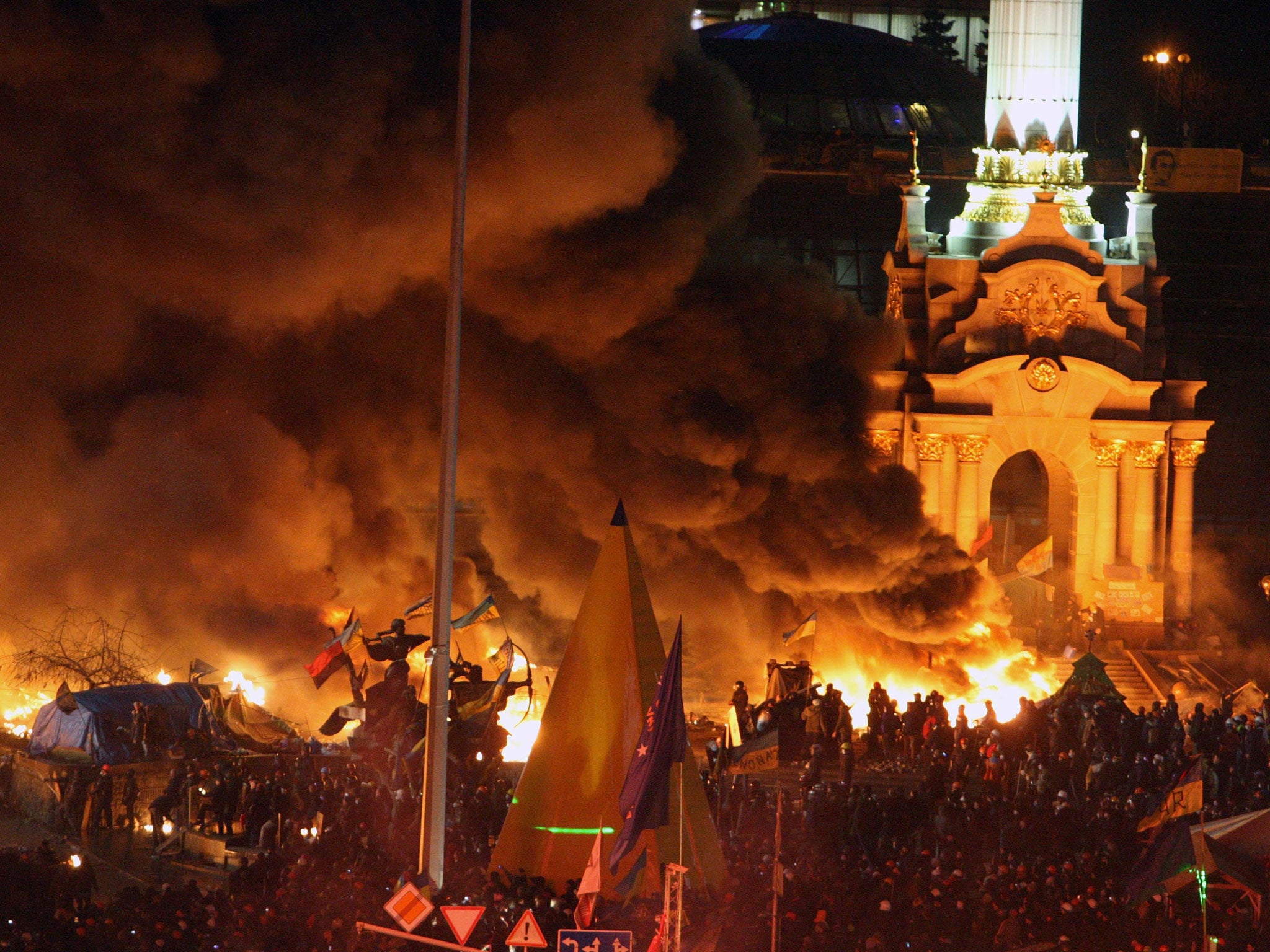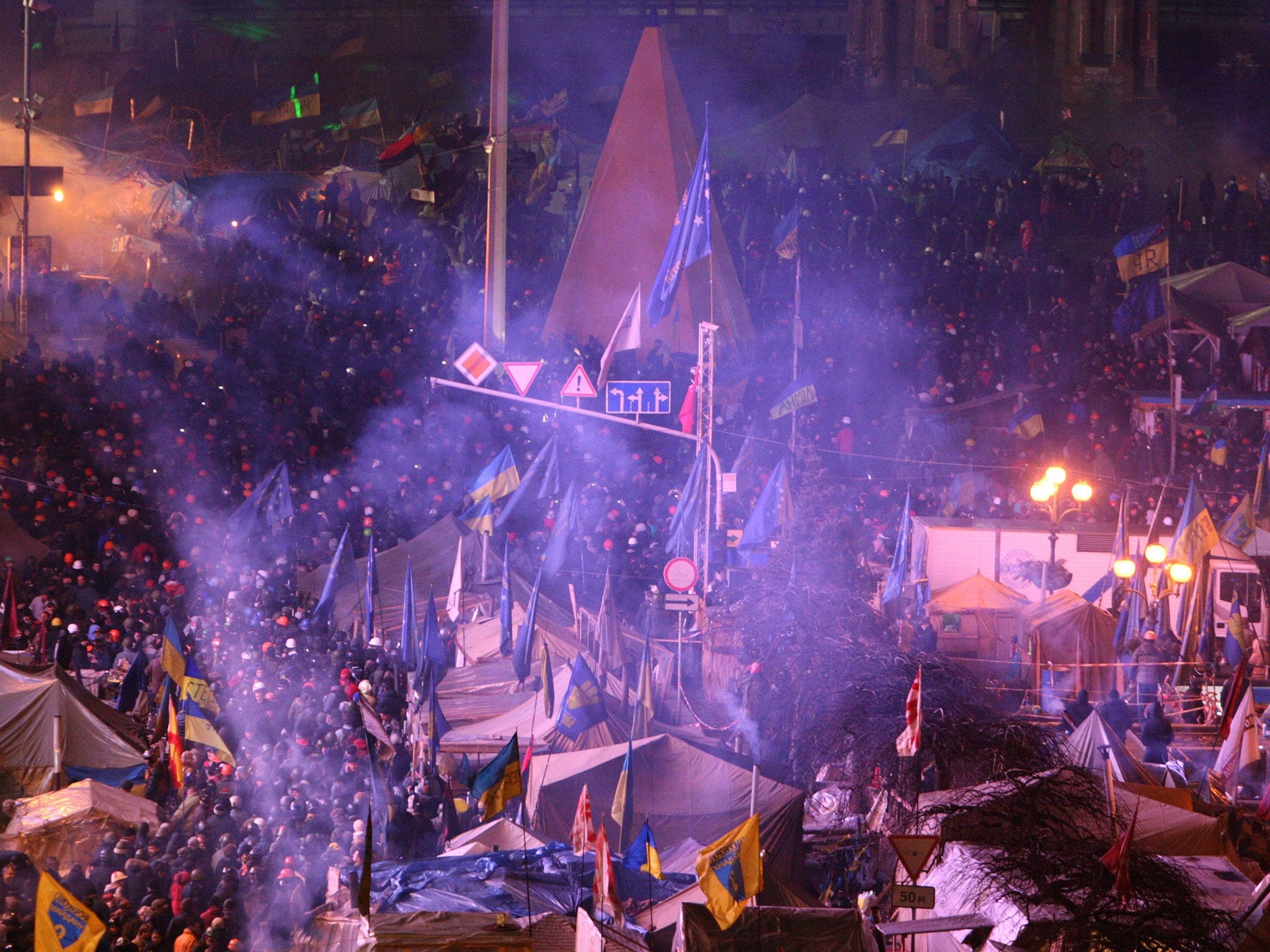Ukraine: What's happening? And how will it end?
As the West dithers, the biggest winner to date has been the Kremlin

Your support helps us to tell the story
From reproductive rights to climate change to Big Tech, The Independent is on the ground when the story is developing. Whether it's investigating the financials of Elon Musk's pro-Trump PAC or producing our latest documentary, 'The A Word', which shines a light on the American women fighting for reproductive rights, we know how important it is to parse out the facts from the messaging.
At such a critical moment in US history, we need reporters on the ground. Your donation allows us to keep sending journalists to speak to both sides of the story.
The Independent is trusted by Americans across the entire political spectrum. And unlike many other quality news outlets, we choose not to lock Americans out of our reporting and analysis with paywalls. We believe quality journalism should be available to everyone, paid for by those who can afford it.
Your support makes all the difference.
What's happening in Ukraine?
Ukraine is facing the most serious political crisis in its history. The Euromaidan protests started last November after President Victor Yanukovych abruptly announced that Ukraine would be postponing signing the Association Agreement with the European Union.
The protesters assembled in Kiev initially demanded a reversal of the decision but after several incidents of police brutality they began to call for Yanukovych’s resignation. The resignation of the Prime Minister, Mykola Azarov, in late January combined with the repeal of restrictive laws on protest and free speech and promises for constitutional reform brought relative calm after the protests turned deadly for the first time in January.
All of this was just the calm before the storm and yesterday’s parliamentary debate over constitutional curbs to presidential power triggered the most violent protests to date that have left at least 25 people dead and part of the city center smoldering.
How will this end?
Since the 1990s, politics in Ukraine have been dominated by a fierce competition of oligarchic clans over economic rents. Political parties routinely pay protesters to create a grassroots appeal, but most of the decisions get settled behind closed doors after extensive horse-trading that has little to do with ideology or national interest.
The current Euromaidan protests started as politics as usual in Ukraine—the country underwent the Orange Revolution nine years earlier—but have since become violent due to an influx of provocateurs on both sides. Yanukovych might still be able to strike a deal with the parliamentary opposition coalition, but newly ascending radical groups of unknown provenance like the rightwing “Right Sector” make the situation incredibly dangerous and uncertain. Russia is also playing its own game in Ukraine by putting pressure on Yanukovych by delaying promised economic assistance and accusing the West of meddling in Ukraine’s internal affairs.
Amid the chaos, Ukraine is facing three scenarios:
1. Ukraine becomes another authoritarian post-Soviet state. Unfortunately this is increasingly looking like the most likely outcome of the crisis. Although Yanukovych is deeply unpopular, he is as determined as ever to stay in power. The radical protesters have stoked fears among a wide swathe of the population which can be easily exploited as an excuse to consolidate control.
2. The opposition comes to power. At this point, this is highly unlikely. The parliamentary opposition is weak and with Yulia Tymoshenko in prison lacks a charismatic leader. Even with snap elections, it is unclear if the opposition could improve on their previous showing.
3. The country fractures in two. In every Ukrainian election since independence, there has been a clear regional divide between the pro-Russian southeast and the more western leaning, nationalist northwest. Despite the secessionist rhetoric coming from some marginal actors, this drastic scenario is the least likely outcome due to the huge economic costs that a split would incur and the uncertainty that it would bring to existing elites in both halves of Ukraine.

Why is this important for the European Union and the United States?
So far, neither the EU nor the United States have played an effective role in diffusing the crisis. The EU cannot ignore violence and instability on its doorstep, but it appears that the only policy forthcoming from Brussels might be sanctions which will be of questionable efficacy.
For some EU members, Ukraine’s decision to postpone the Association Agreement was even seen as a blessing in disguise due to fears that Ukraine is too large and too corrupt to be integrated successfully. For all the apprehension regarding Ukraine, an escalation of violence or creeping authoritarianism risks making the broad policy of engagement in the post-Soviet space a failure. As the West dithers, the biggest winner to date has been the Kremlin. Moscow has already essentially called Kiev’s bluff over EU integration and is now dealing with a Ukrainian leadership that is likely to emerge from this crisis weakened and isolated.
Yevgen Sautin is a Ukrainian-American graduate student, and previously Junior Fellow an the Carnegie Endowment for International Peace
Join our commenting forum
Join thought-provoking conversations, follow other Independent readers and see their replies
Comments